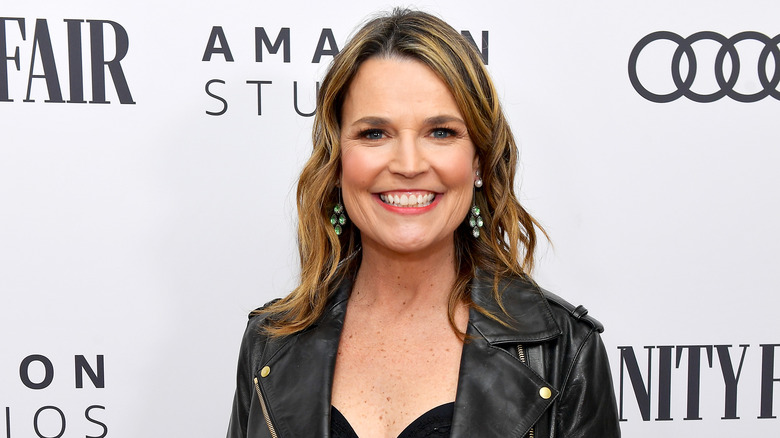Why This Jeopardy! Answer Has Fans Fuming
As popular as "Jeopardy!" continues to be, one answer on Monday's show caused controversy with fans — who just a few days ago were going wild for interim guest host Savannah Guthrie – slamming it as offensive and even just plain incorrect (via Aol).
Guthrie read out the following clue from the category Plain-Named Maladies: "Postural orthostatic tachycardia syndrome is also known as Grinch Syndrome because this organ is too small." Postural orthostatic tachycardia syndrome, or POTS, is a condition where going from lying to standing causes an unusually high increase in heart rate, and is described by Healthline as making people feel dizzy and fatigued when standing up. It's known to occur particularly in younger women, and Aol reports that there's been an increase in POTS diagnoses in COVID-19 patients.
What really riled up viewers, however, was the use of the term "Grinch Syndrome" to describe the condition (of course based on the classic Dr. Seuss character), as well as the association of the condition with having a small heart.
Some people with POTS took offense to the Jeopardy! clue
A number of "Jeopardy!" viewers took to Twitter to slam the show for the clue — for which the correct answer was "What is the heart?." One called it "shameful. I have POTs and am sad you would resort to this. How low. And I might add, incredibly incorrect" (via Twitter), while another tweeted, "I was diagnosed with POTS ... I guarantee you that my heart didn't suddenly shrink two sizes. Dysautonomia is brutal, life limiting & sorely misunderstood. Shameful. Disability is no laughing matter."
Not only that, but Dysautonomia International, a non-profit focusing on autonomic nervous system disorders, requested an apology on the social media platform, describing the term "Grinch Syndrome" as outdated and misogynistic, and telling the show to "do better" (via Twitter). According to John Hopkins Medicine, the condition affects between one and three million Americans, and — despite common misconceptions about heart size — "the structure of the heart is itself normal" in the majority of people who live with it.

